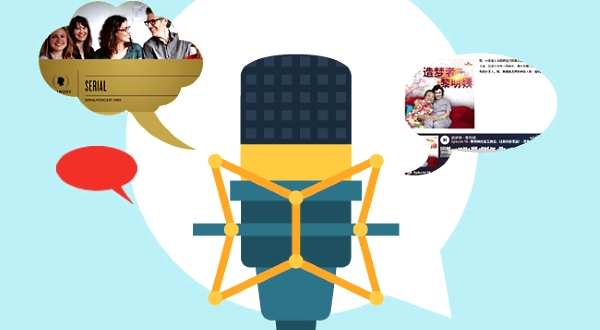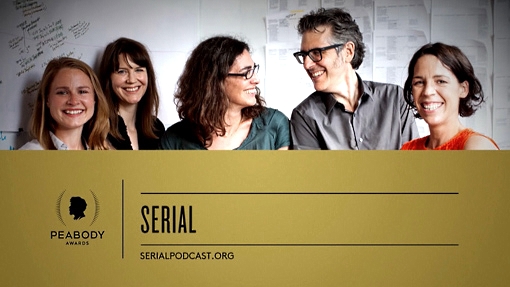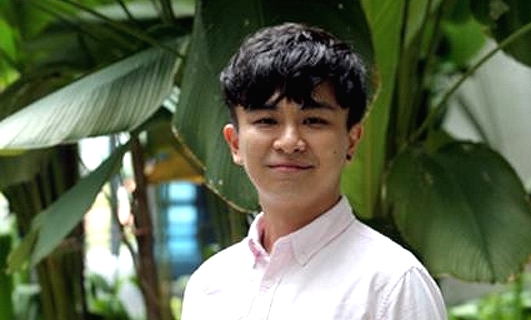
Sin Chew Daily
While videos are the mainstream media in the cyberworld today, there are nevertheless a sizable group of people falling for voice-only content, as audio books, voice chat apps and podcasts beginning to experience phenomenal growth in their market values.
Voice communication social media platform Clubhouse has catapulted the development of this particular segment of social media economy while the once hushed podcast industry begins to see a revival.
Podcasting has been in the market for over 15 years now. In its Technology, Media and Telecommunications (TMT) Predictions Report 2020, Deloitte projected a 30% growth in the global podcast industry to US$1.1 billion.
Actually such an immense development potential was already anticipated by some Malaysian companies several years before that, investing their resources in this particular social media segment to allow content creators to convey their messages, tell their unique stories and share all the wonderful things in life, through the power of the voice.
It all started with iPod
So how many podcasters are there in this world? The number was estimated to be over 1.9 million as of January 7 this year, 65% of them podcasting in English with only a meager 1.37% in Chinese.
The word "podcast" is derived from two words "iPod" and "broadcast", and its initial success could be attributed to Apple whose iPod products could support podcast contents from 2005, thus galvanizing large hordes of content creators to become podcasters. Steve Jobs once said: Podcasting is the next generation of radio.
Although podcasting took shape quite a while ago, its development has been rather sluggish until sometime in October 2014 when Serial Podcast was born and gained popularity across the globe with millions of followers, and countless of imitators too.
The media industry believes in the power of podcasting, New York Times launched "The Daily" podcast program in 2017 aired on each weekday from Monday through Friday to give listeners in-depth analyses of the day's most heated topics and happenings in not more than 30 minutes. The program boasts more than two million downloads for each episode.

'Ais Kacang' enlivening the local podcast scene
In Malaysia, Media Prima launched the "Ais Kacang" podcast channel back in 2017 by inviting the participation of all the best voices in the country to be its content creators, among them Alex On who together with his partner Kiera created a Chinese language podcast "Only Ghost Knows".
"I used to interview people and I'm really not used to getting interviewed!" he said jokingly after taking off his face mask.
"Only Ghost Knows" started airing in June 2017, and Alex and Kiera signed a one-year contract to become "Ais Kacang" content creators, posting on average of one episode each week for a total of 52 episodes. In two years' time, they have created a total of 102 episodes to become the most prolific content creators. This was followed by a 94-episode financial planning podcast and an 88-episode podcast on pets.
Alex said Chinese language podcasts were largely unknown in this country although podcasts have become almost a lifestyle in other countries, adding that many of his friends only came to know about it when "Ais Kacang" came into service.
"I feel that Malaysian users are still not used to the podcast model and many habitually treat radio audio as background music."
However, Alex believes young Malaysians will become increasingly receptive to podcast applications.
There are many podcast apps available in the market today, including Google Podcasts, Spotify, SoundOn, Xiao Yu Zhou FM, Ximalaya, etc. Podcasts are poised to become a new channel for young generation web users to acquire a diverse range of information in future.
Alex used to be a fan of radio programs before he switched to Spotify and even paid for a subscription to access the platform's music and podcast contents.
He said he started to become podcaster purely out of interest with hardly any preparation for it.
"I believed I was able to share some interesting ghost stories…"

Easier than being YouTuber or DJ
Becoming a podcaster is way easier than a radio station DJ or even YouTuber because a YouTuber needs to know how to film and edit the video clips to ensure the quality and aesthetics of the uploaded content. Being a podcaster is much easier.
"It's not hard to get some guests coming to my programs because they only need to show their voices, not their faces. That's why they feel more at ease with my program."
There is not much limit on the contents being streamed on "Ais Kacang", anything from music, stories, society, culture, current affairs, parenting to financial management and investment.
"Contents on supernatural stories or experiences are quite rare here although there are some popular ghost story programs on local Chinese radio stations."
Alex said the platform operators would normally not filter the uploaded contents except cautioning the content creators not to disclose the exact locations or names of buildings to avoid possible lawsuits from building proprietors.
"We have produced over a hundred episodes but they never filtered any part of the content so long as we don't cross the line.
"There is also no time constraint although the platform operator has recommended ten to 15 minutes for each episode."
After "Ais Kacang" stopped updating the site last year, Alex and his partner left the podcast platform and switched to Facebook Live. However, he finds that his fans still prefer podcast as the episodes can be retrieved much more conveniently than past FB live videos.
No profitable model
Alex said he started podcasting out of sheer interest without taking into consideration the economic aspect of it or how to generate traffic. To him, "Ais Kacang" offers content creators powerful support, including budget for each episode and the flexibility to use its recording studio with technicians on site helping to control the audio quality before editing by voice editors.
"If we were to produce new contents in future, we will have to face the challenge of listener traffic as we will only have income if we hit a certain traffic level.
"Podcasting should be seen as only a form of hobby outside a regular job because so far we are still unable to establish a commercially profitable model even as more people join in.
"Podcasting helps increase our exposure but it is hard to monetize traffic volume. Even if there might be opportunities of advertisement cooperation, they will only provide some short-term extra cash and will never assure fixed monthly income.
"I started podcasting out of interest. I never thought of making it a full-time job," he concluded.
ADVERTISEMENT
ADVERTISEMENT


































